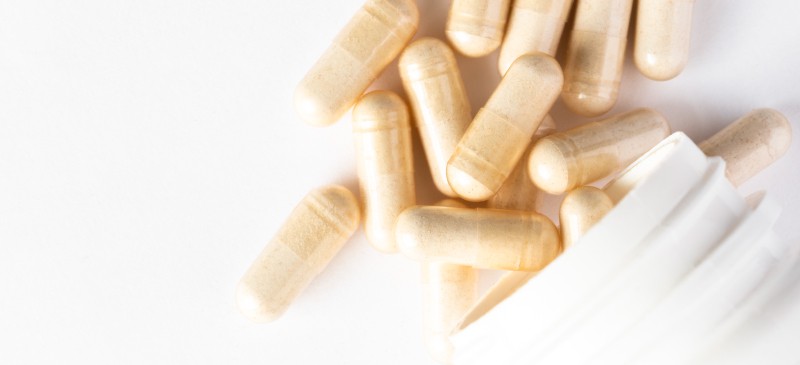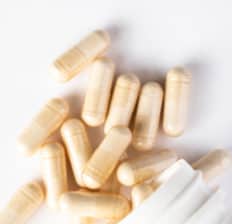This Dr. Axe content is medically reviewed or fact checked to ensure factually accurate information.
With strict editorial sourcing guidelines, we only link to academic research institutions, reputable media sites and, when research is available, medically peer-reviewed studies. Note that the numbers in parentheses (1, 2, etc.) are clickable links to these studies.
The information in our articles is NOT intended to replace a one-on-one relationship with a qualified health care professional and is not intended as medical advice.
This article is based on scientific evidence, written by experts and fact checked by our trained editorial staff. Note that the numbers in parentheses (1, 2, etc.) are clickable links to medically peer-reviewed studies.
Our team includes licensed nutritionists and dietitians, certified health education specialists, as well as certified strength and conditioning specialists, personal trainers and corrective exercise specialists. Our team aims to be not only thorough with its research, but also objective and unbiased.
The information in our articles is NOT intended to replace a one-on-one relationship with a qualified health care professional and is not intended as medical advice.
What Is Phosphatidylcholine? Benefits, Uses, Forms & Side Effects
August 21, 2021

Phosphatidylcholine is a phospholipid that makes an important neurotransmitter called acetylcholine. It plays a role in memory, movement and metabolism and is used to reduce fat deposits in the liver and under the skin.
The naturally occurring chemical is present in eggs, red meat, nuts and whole grains. It can also be taken in supplement form.
It’s used to fight memory loss, reduce fat deposits and support metabolic health.
Is phosphatidylcholine supplementation right for you? Read more on this important chemical to find out.
What Is Phosphatidylcholine?
Phosphatidylcholine is a phospholipid that’s contained in eggs, sunflower and other foods. It serves as a source of choline in the body.
Although the terms lecithin and phosphatidylcholine (PC) are often used interchangeably, PC is actually made up of lecithin, but they’re two different things.
Lecithin is isolated from foods (such as soy lecithin) and used as an additive because it works as an emulsifier. Lecithin contains two types of phospholipids: phosphatidylserine and phosphatidylcholine.
These two components are essential for biological membranes. They work to replace damaged cell membranes and restore their structure and function.
The body uses PC to make acetylcholine, a brain chemical that plays a major role in the autonomic nervous system to regulate heart rate, blood vessel dilation, bodily secretions and more. Acetylcholine has been used in treatments for cognitive issues, including Alzheimer’s disease, manic depressive disorder and anxiety.
Phosphatidylcholine’s ability to break down fats has also been researched. That explains why it’s sometimes injected under the skin to treat non-cancerous fatty tumors and as a cosmetic agent to dissolve fat, although the evidence on the latter is limited.
Benefits
The benefits of phosphatidylcholine come from its role as a phospholipid that can break down fat deposits and a chemical that boosts a neurotransmitter linked to memory. Here’s the run down of how PC may benefit body function and overall health:
1. Supports Healthy Memory
An animal study published in the Journal of Nutrition examined the effects of PC administration in mice with dementia and low acetylcholine concentration. Researchers found that administration of PC improved memory and generally increased brain choline and acetylcholine levels to or above the levels of the control normal mice.
In a study published in Neurobiology of Aging, researchers found that PC levels were significantly lower in patients with Alzheimer’s disease, adding to the evidence that it plays an important role in the disease’s pathology.
2. Supports Metabolic Health
Phosphatidylserine (PE) and phosphatidylcholine are the must abundant phospholipids that play important roles in regulating lipids, lipoprotein and whole-body energy metabolism. Low levels of PC in tissues can influence energy metabolism and have been linked to disease progression.
Low PC and PE levels are associated with metabolic disorders, including atherosclerosis, insulin resistance and obesity.
3. May Fight Non-Alcoholic Fatty Liver Disease
PC is known for its ability to potentially reduce fat deposits and has been shown to lower hepatic lipid levels in mice fed a high-fat diet. This study supports the idea that dietary PC may help fight non-alcoholic fatty liver disease, but more human studies are needed to confirm this potential phosphatidylcholine benefit.
4. May Reduce Fat Deposits
Preliminary research suggests that PC may be useful for reducing fat deposits in the chin, neck, thighs and abdomen. Research published in Aesthetic Plastic Surgery suggests that when phosphatidylcholine injections were applied to 50 patients to reduce superficial fat deposits, a clear improvement occurred in all instances.
Treatment with PC also marked a fat deposit reduction without recurrence over a two-year follow-up period and no weight gain.
5. Fights Ulcerative Colitis
Phosphatidylcholine may help protect the large intestine wall and relieve symptoms related to ulcerative colitis, an inflammatory bowel disease. Research indicates that ulcerative colitis patients have decreased PC content, and the addition to PC to the colonic mucus helps alleviate inflammatory activity.
There are several other potential phosphatidylcholine benefits that haven’t been researched thoroughly on humans. These include PC’s ability to dissolve cholesterol gallstones, reduce anxiety, relieve PMS symptoms, fight acne and soothe eczema.
How to Use
Phosphatidylcholine is given in several forms, including the following:
- Mouth: Phosphatidylcholine supplements are available in capsule and tablet forms. There’s no standard recommended dose, but it appears to be safe to take up to 30 grams per day for six weeks or up to six grams per day for two years. A commonly recommended dose is 840 milligrams up to twice daily.
- Injection: Phosphatidylcholine injections can be given under the skin by a trained professional. Doses should be spread apart by two to four weeks.
- Topical: PC is applied to the skin to reduce inflammation, acne and more. It’s available in serum, ointment and oil forms. Read the label directions for proper usage.
You can get PC naturally in food sources, which is the best way to maintain healthy levels. The phospholipid is found in red meat, eggs, nuts, seeds and whole grains.
Risks and Side Effects
Taking PC supplements may cause upset stomach, diarrhea or excessive sweating. Injection side effects may include irritation, redness, burning, pain and itchiness at the injection site.
It’s possible for PC injections to make non-cancerous fatty tumors for fibrous, which would require the tumor to be removed surgically.
PC supplements should not be taken with an AChE inhibitor, unless done under the care of a doctor. Taking the supplement and medication together may cause muscle weakness, trouble breathing, reduced heart rate and seizures.
PC shouldn’t be taken with Alzheimer’s disease medications unless recommended by your health care provider.
Conclusion
- Phosphatidylcholine is a phospholipid that’s present in foods like eggs and whole grains. It’s used to make an important neurotransmitter that plays a role in memory.
- PC benefits include its ability to improve memory, reduce fat deposits, relieve ulcerative colitis symptoms and support metabolic health.
- The chemical can be taken in supplement form, injected under the skin by a trained professional or used topically. It does interact with some medications, so speak to your doctor before using it therapeutically.















